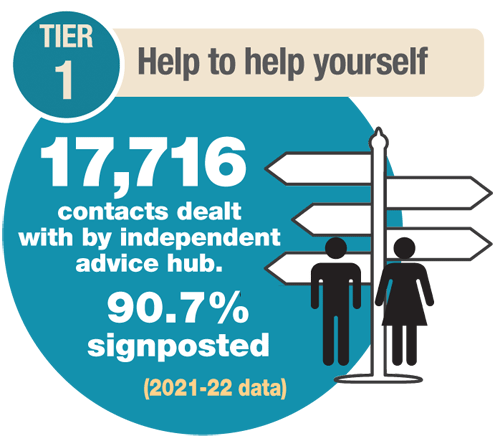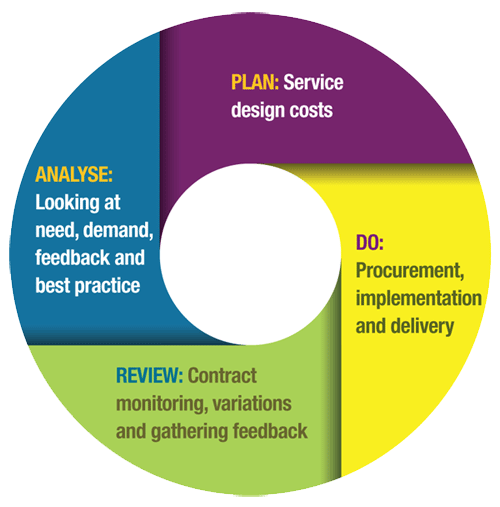
Our approach
Return to the MPS home page | Go to previous page | Go to next page
Our approach to social care is built around three tiers which aim to maximise independence – building upon people’s strengths and helping them to achieve their goals.
The Three Tier Model emphasises early intervention and self-management, delaying the need for formal care and reducing demand for adult social care. It relies on good information being available to people, local communities being central to supporting people, and that when people do need longer term support that they have an active role in achieving this.
The Three Tier model includes:
- encouraging more people to live independently across Bradford District
- work with communities to build on resources to support people outside of council funded support
- reduce the need for ongoing support from adult social care
- ensure our support builds on the strengths and abilities of people, their families and their local communities
- tailor the on-going support we provide to individuals through personal budgets, creative support planning and building on people’s strengths and resources to meet their aims
- reduce waiting times for people contacting adult care and support
- prevention and maximising independence in home care
Where formal care is needed we will make no assumption of long-term care – focusing on short term provision first and progressing if appropriate.
Tier one

Tier one enables accessible advice and support to the whole community. It is about ensuring accessible information and services are available that support people to self-manage, maintain their wellbeing and maximise their independence for as long as possible, preventing and reducing their need for formal services.
Tier two

Tier two includes time-limited support to maintain or regain independence at times of changing needs. In Tier 2 we offer an immediate, flexible and personal response following a crisis or change in needs – and then focus on returning them to their optimum, enabling them to continue to live their lives as they wish as fully as possible.
Tier three

Tier three provides personalised longer-term support when necessary. We offer personalised, goals-focused assessments for longer-term care that build on the strengths of the individual and their support network – building support plans on how people choose to live their life, not what services are available.
Community-led support (CLS) is our model of social care practice, and a key enabler of the three tier approach. This involves social care staff and professionals working in localities to better understand local resources and needs of the community. Further information on Community-led support can be found in the report 'What works in Community Led Support?' from NDTI. A strengths based approach is embedded throughout practice and each team will provide support and guidance in the way to best meet the needs of the citizens in the area.
Commissioning is fundamental to the approach through gathering and sharing intelligence; and brokering provision which is innovative and flexible.
Our approach to procurement
The changing level and complexity of demand, as well as the rights of people to have choice about how their services are delivered, has led the Council to think differently about how it procures services and in order to effect change in this area innovation has been required.
There are many factors to consider to ensure the right services are procured, in the right way, including the needs of people and what they require; as well as understanding the market and its ability to provide the services and respond to these needs in the right way.
The Council has been working to understand these issues in its approach to procurement. Challenging, re-thinking and re-designing procurement processes from end to end is taking place across a range of services.
The application of the Light Touch Regime, by Health and Wellbeing has allowed flexibility and the ability to design processes that fit with its vision of providing choice and control to people whilst enabling local providers to have the opportunity to bid on an equal footing with larger national counterparts. Examples of how we have adapted processes can be seen on our Residential and Nursing, Daytime Activities and Supporting Living provider lists

Return to the MPS home page | Go to previous page | Go to next page